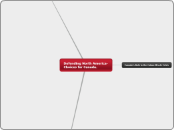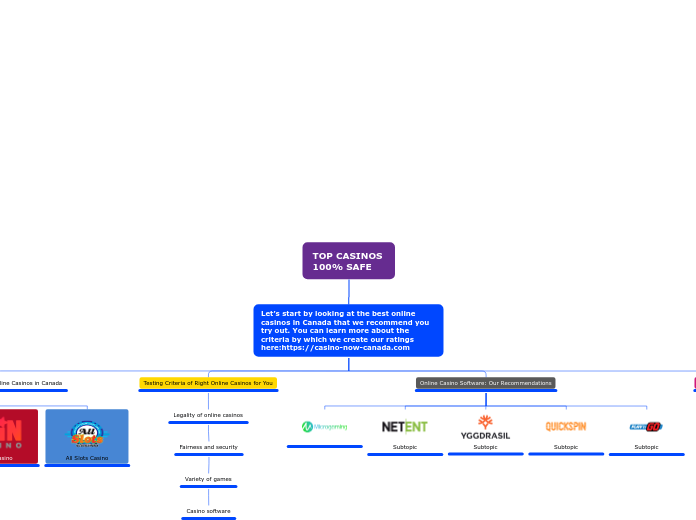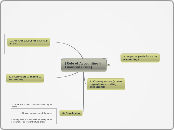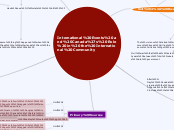Defending North America- Choices for Canada.
Canada's Acceptance of Nuclear Weapons in 1963
For: If Canada had accepted Nuclear weapons in 1963, the nation would probably end up as the second U.S. Having nuclear weapons meant that they could do whatever they wanted. Basically, having a nuke means less chance of a nuke coming your way, because they know a nuke will come their way. From a perspective, this would have been a benefical thing to occur, because the government came up with a strategy called Deterrence, where they threaten an immense retaliation if attacked, such as aggressors are deterred if they don't want to suffer great damage - it's a part of safety and protection of the country's nation.
For: Nuclear arms are the ultimate weapons of mass distruction and provides protection to the country. They were originally invented to stop World War II and hoped to deterrent to all other wars thereafter. This was a beneficial thing, because some nuclear weapons is used based of oil-based requirements. As long as another countries know that the other countries have the same nuclear weapons, there will be a less desired attack or otherwise seek war with them. From a perspective, the nuclear weapon is made for WW III in the near future, it will be a nuclear war; which will end up with everyone nuking each other till 1/3 of the world is left. As Einsten quoted "I do not know know that the weapons of WW III will be fought with, but WW V will be fought with sticks and stones".
Against: The Government had thoughts of developing its own nuclear weapons in the 1950's, but finally went against it. They were simply not need, because unlike western European countries, Canada is not a real threat of invasion. It is one thing for an army to move across Europe, but it's not really a practical option for invading Canada. The Soviet Union didn't have even ships to even hope of transporting enough troops to invade Canada in the 1950-1960's, let alone the United States. This was considerably a good thing for Canada, because when Britain tried to keep 20,000 troops in the Falklands in 1982.It left no hope for the Soviet Unions to actually get and supply more troops to North America do to the occupy even a fraction of Canada.
Against: Canada made a good decision on not accepting the nuclear weapons in 1963, because it would only make the nation a target. Canada not having that sort of stuff, keeps it under the radar; meaning that there wouldn't be any countries chasing them down like what they are doing to the U.S. Nuclear weapons are attack weapons, by having them, it means that they have an advantage and can bomb other countries . Thus, it can lead to another war between the countries that were involved in the WW I and II.
The Scraping of the Avro Arrow
Against: In 1958, the Avro Arrow was canceled by Diefenbaker. It was canceled due to a few reasonsing:Diefenbaker thought it was a waste of money and it would become an absolute and manned aircraft was going to be replaced by missles. Critics argued that the developement could have been completed for the cost of cancellation fee alones. Although, the Avro Arrow was cheaper than purchasing the Bomarc, SAGE and replacement interceptors from the U.S. The project was canceled a month before the end of the six month review period, Diefenbaker gave the program (Yahoo, 2008). It would be a disadvantage towards Canadians, because it meant conflict between the government, because they would place higher taxes and raise prices on living necessities/expenses, which would lead to a possible chance of the country falling into another economic depression.
Against: The Avro Arrow being scrapped was a knowledgeability a good thing. The only valid reason for the cancelation to occur was that it was a waste of money already spent on the aircraft. After the cancelation, the Governmnet spent more money on fewered used interior aircraft that was rejected in the first place. This would be considered a good thing, because the government wouldn't have to spend money on an aircraft that is incompatible with the SAGE computer, which was the keystone to NORAD's defence in 1950-1960. The loss of the Avro Arrow did not have a huge affect on Canada's aviation industry as many are led to believe. The Arrow was far from "the best aircraft at the time". The F-4 would go on to have similar-world performance as the arrow, but was much more versatile.
For: The Avro Canada CF-105 Arrow is considered one of the both advanced and aerodynamic achievement for the Canadian aviation industry. The arrow can most likely exceed over 60,000 ft (18,000 m). The Jet age created a new race betwee nations to see who could go faster and farther and who could eventually reach the moon. This brought in conflict, because most countries fought with each other to see who could accumulate and develop superior aircrafts first. From a personal perspective, this situation was similar to the arms race; where the soviet union and U.S had a race to see who could develop superior weapons and make it so powerful, that it would kill their enemies in a blink of an eye.(Maybe that was a bit exaggerated, but still.). The program was technological marvel for it's time and a matter of pride for many Canadians. From a perspective, many saw the aircraft as a straight-wing, propellar-driven craft. This thought had changed, when the Avro had made an apperance with it's delta-wing-shape and boasts, because many observers had thought it was something right out of a comic book, and it was an aircraft that would find itself into a part of Canadian-American history.
For: The Avro Arrow, as described by Mackenzie "It's an attack aircraft, it's designed for attacking around targets and its stealth is most effective against short range radar, protecting ground targets". The propsal suggested that the made-in-Canada Avro Arrow would also revitalize a Canadian aerospace industry, that would produce thousands of jobs and billions of dollars to the Canadian economy. This would help bring Canada together, as an independent nation, because it would give peoplethe opportunity to get a job to feed their family. Thus, they wouldn't live in poverty, if this plan had succeed.
For: When the Avro Arrow had been canceled, it would lead to a distarous event for Canada. The Avro Arrow was one of the most advanced fighter jet in the world, still to this day, nothing could be touched, on the other hand, it was a great project and would have neem effective, epspecially during battles and the amount of money Canada would have made. This is one of the most depressing events to have occurred to Canada, because they had to make an agreement with the U.S, saying that they will not build any fighter jets without their approval, whenever they liked it or not; this was one of the reasons why, Canada went from being an independent leader into a follower in aviation.
Canada's Role in the Cuban Missle Crisis
Against: After Diefenbaker was informed the situation of the situation and initially doubted the intelligence and asked for more photographs of the missles site in Cuba. Diefenbaker was supportive of the Americans action in the Crisis, but did not give them unequivocal support that Kennedy had expected. The relationship of the two nations were heading downhill, when Canada didn't send their troops on full alert to help the Americans, which led to Kennedy feeeling insulted. From there on, the U.S has considered Canada as a "Colony" and that when they go to war, Canada should automatically follow along. The same tensions arose during the Vietnam war, when the U.S expected Canada to follow it.
For: For many, the Cuban Missle Crisis was the most heated moment of the Cold War. As the two hegemonic superpower nations struggled for ideological dominance, the world lived in fear of nuclear annihilation. This was one of the most heated moments during a war in Canadian history, because great leaders arose and were broken, and life-threatening decisions were made during thirteen uneasy days in October. The Crisis was the crux of nuclear terror and continues to be referenced around North Korea, Iraq and Irasel subcontinent today (Yahoo, 2009).
For: For the past forty-five years, the Cuban Missle Crisis has been the main focus point of Academic studys, in international relations and Canadian history. Some aspects of how the Crisis was handled politically and some military related skills still bothered people, because many details remained classified after the Cold War had eneded. This was a beneficial towards Canada/Canadian history, aside from the intital level of analysis was quite shallow, but kept alive by a few excellent first-hand accounts, such as Robert Kennedy's Thirteen Day's. Yet without a reliable source, it was difficult to obtain/access where the absence information was marked, especially those covering opreations at sea.
Against: When the Cuban Missle Crisis began on October 14, 1962. The Americans were not pleased with this, because it overthrew the pro U.S leader, Fidel Castro. They tried to start an invasion, which later failed. The Americans later found out that missles were being built in Cuba with aid from Soviets. This was not a good thing for both nations (Canada and U.S), because it changed the NORAD system, when Prime Minster Diefenbaker failed to respond to President Kennedy's request. Thus, the Canadians and Americans relationship was damaged from this.









